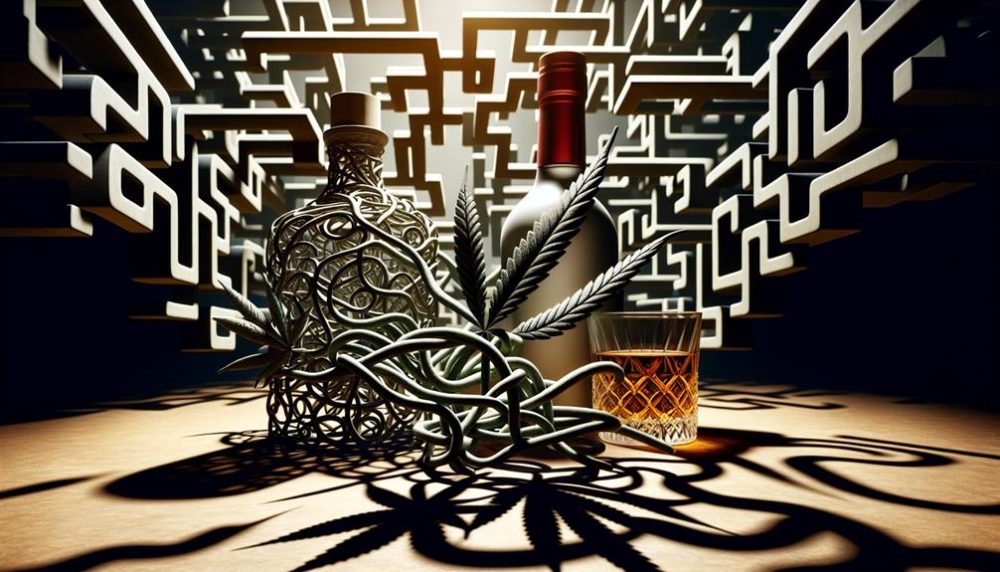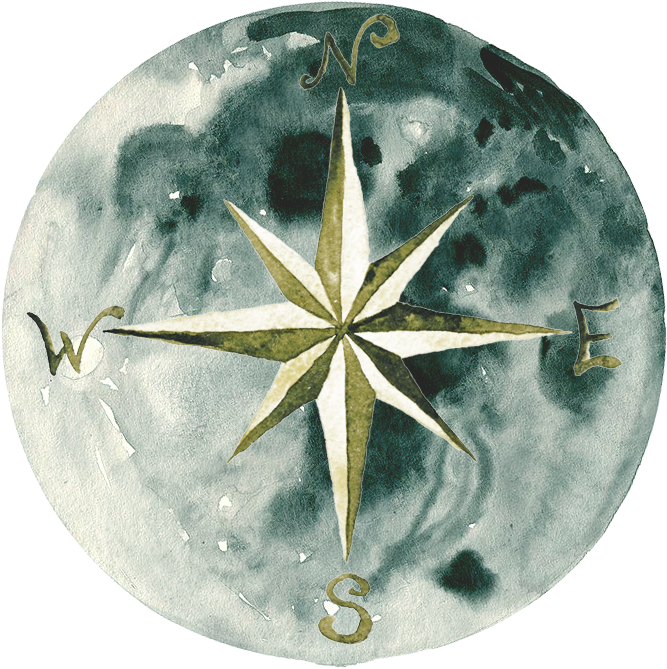Washington State’s regulations present a perplexing puzzle for consumers and producers alike in the ever-evolving landscape of intoxicants. Central to this confusion is the prohibition against mixing THC, the psychoactive compound in cannabis, with alcohol. While both substances can be legally consumed separately, their combination in commercial products remains a legal no-go.

The THC-Alcohol Conundrum: Legal Roadblocks
At the heart of Washington’s regulations lies the prohibition against blending THC and alcohol in commercial products. This prohibition stems from the state’s stance on responsible consumption and public safety. While individuals can legally enjoy both alcohol and cannabis separately, the law draws a firm line against their amalgamation, citing potential health risks and regulatory concerns.
Protecting Public Health
Washington’s prohibition on mixing THC and alcohol in commercial products is rooted in concerns for public health. Combining these substances can potentially exacerbate the effects of intoxication, leading to impaired judgment, coordination, and cognitive function. Such impairment poses significant risks to individuals’ well-being and public safety, necessitating stringent regulatory measures to mitigate harm.
Mitigating Regulatory Concerns
Beyond public health considerations, the prohibition addresses regulatory complexities inherent in the intersection of alcohol and cannabis. By drawing a clear line against their amalgamation, Washington State aims to streamline enforcement efforts, ensuring compliance with existing laws and regulations. This clarity reduces ambiguity for producers, retailers, and consumers, facilitating a more transparent and accountable regulatory environment.
Promoting Responsible Consumption
Moreover, the prohibition underscores Washington’s commitment to promoting responsible consumption practices. While individuals have the legal right to enjoy alcohol and cannabis separately, their combination introduces additional risks and challenges. By discouraging the mixing of THC and alcohol in commercial products, the state encourages consumers to make informed choices and prioritize their well-being.
Aligning with Public Sentiment
The prohibition also reflects broader societal attitudes towards the co-mingling of alcohol and cannabis. While the legalization of cannabis has gained widespread acceptance, concerns persist regarding its interaction with other substances, particularly alcohol. Washington’s regulatory stance resonates with public sentiment, emphasizing the importance of respecting each intoxicant’s distinct properties and effects.
Terpenes: The Legal Non-Psychoactive Loophole
Amidst the legal quagmire, terpenes emerge as a fascinating loophole. These aromatic compounds, found in both hops and cannabis, offer a tantalizing avenue for exploration in the world of beverages.
Unlike THC, terpenes lack psychoactive properties, making them legally permissible for use in alcoholic drinks. This distinction allows innovative mixologists to incorporate cannabis-inspired flavors without breaking the law.
The Role of Terpenes in Beverages
Terpenes, with their diverse array of scents and flavors, play a pivotal role in crafting unique beverage experiences. From citrusy aromas to earthy undertones, these compounds lend depth and complexity to alcoholic drinks without introducing THC. While the marriage of THC and alcohol remains off-limits, terpenes are easy to buy online and offer a legal workaround, allowing for the creation of cannabis-inspired beverages that comply with state regulations.
Unlocking Flavor Complexity
In the world of mixology, terpenes serve as a secret ingredient, unlocking a realm of flavor complexity previously unexplored. By carefully selecting and incorporating terpenes into beverage recipes, bartenders and brewers can infuse their creations with layers of depth and character, tantalizing the taste buds with every sip. Whether used to enhance a cocktail’s crispness or a beer’s richness, terpenes offer endless possibilities for experimentation and innovation.
Crafting Cannabis-Inspired Beverages
One of the most intriguing applications of terpenes in beverages is their role in crafting cannabis-inspired drinks. While the combination of THC and alcohol remains strictly regulated, terpenes provide a legal pathway for capturing the essence of cannabis without the psychoactive effects.
By harnessing terpenes derived from cannabis strains, beverage producers can create tantalizing libations that evoke the distinct aroma and flavor profiles of the plant, offering consumers a taste of the cannabis experience without the high.
Exploring New Frontiers
As the boundaries of beverage innovation continue to expand, terpenes represent a frontier ripe for exploration. With advancements in extraction techniques and flavor science, the potential for incorporating terpenes into beverages has never been more significant. From botanical-infused cocktails to hop-forward beers, terpenes offer a versatile tool for enhancing flavor and aroma, pushing the boundaries of traditional beverage crafting into exciting new territory.
Navigating the Regulatory Landscape
For producers and consumers navigating Washington’s regulatory landscape, understanding the nuances of THC-alcohol prohibition and the legality of terpenes is crucial. While the law prohibits the mixing of THC and alcohol, it leaves room for creative exploration with terpenes. By leveraging this legal distinction, entrepreneurs can develop innovative beverage offerings that cater to evolving consumer tastes while adhering to regulatory guidelines.
Balancing Innovation and Compliance
As Washington’s alcohol and cannabis regulations evolve, balancing innovation and compliance is paramount. While the prohibition against THC-alcohol mixing poses challenges for the industry, the legal use of terpenes offers a pathway for creative expression. By embracing this legal loophole, producers can navigate the complexities of Washington’s regulatory landscape while offering consumers exciting new beverage experiences.

Leave a Reply